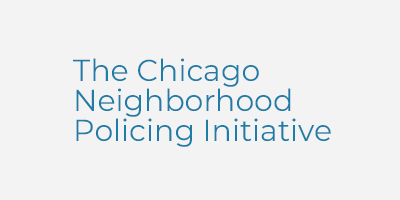Chicago is dealing with two mutually reinforcing crises: violence and a lack of police legitimacy.
When the law enforcement and criminal justice systems are not fair and responsive, residents bypass those institutions and may take matters into their own hands, while also refusing to work with police to solve crime in their communities.
One example of how that cycle plays out: the Chicago Police Department solves only 1 in 4 homicides, decreasing residents’ trust in police, who need witnesses to help solve crimes. With only 25 percent of homicides cleared, trust in police erodes and further eroding trust in police.
Police reform can bolster community trust, leading to more positive relationships between police and communities, which can help police reduce violence.
The Police Accountability Task Force and the U.S. Justice Department separately found that more work needs to be done:
- Police Accountability Task Force findings:
- Failure to make accountability a core value and imperative within CPD
- Significant underinvestment in human capital
- Department of Justice findings:
- CPD officers have engaged in use of force in violation of the 4th Amendment
- City fails to investigate the majority of police misconduct cases it is required to investigate by law
- Other systemic deficiencies were found in addressing racially discriminatory conduct by officers, and in training, officer wellness, data collection, and promotions
To boost reform and build trust, PSPC supports community engagement, police training, and officer support. Recipients of PSPC grants include:
Grassroots Alliance for Police Accountability (GAPA), a community organization working with the Chicago City Council to pass police accountability legislation that is based on feedback from residents across Chicago. Current-year PSPC grants will support implementation of the ordinance after it is approved.
The Chicago Neighborhood Policing Initiative, which is designed to increase community-police engagement by creating a community policing structure that provides for accountability, problem-solving capabilities, and increased contact between police officers and neighborhood residents.




